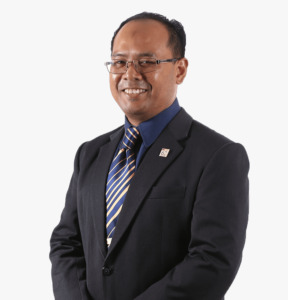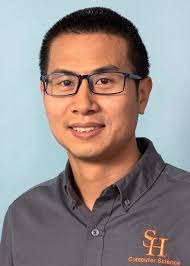Keynote Speakers
Prof. Ts. Dr. Ali Selamat
Prof. Ts. Dr. Ali Selamat is an academician at Malaysia Japan International Institute of Technology (MJIIT), Universiti Teknologi Malaysia (UTM), Kuala Lumpur, Malaysia. An academic institution established under the cooperation of JICA (Japanese International Cooperation Agency) and Ministry of Higher Education Malaysia (MOHE) to provide Japanese oriented engineering education in Malaysia (http://mjiit.utm.my/). Currently he is serving as the Dean for the institute. He is also current a chair of IEEE Computer Society, Malaysia Section. He is also the editorial board of Knowledge Based Systems Journal Elsevier, International Journal of Information and Database Systems (IJIDS), Inderscience Publications, Vietnam Journal of Computer Science, World Scientific Publications, Service Oriented Computing, Springer Verlag and PSU Research Review: An International Journal, published by Emerlad Publications. His research interests include cloud computing, software security, software engineering, software agents, web engineering, information retrievals, pattern recognition, genetic algorithms, neural networks and soft-computing.
Vung Pham, Ph.D.
Dr. Pham is currently an Assistant Professor in the Department of Computer Science, Sam Houston State University. His areas of expertise centered around data analytics, data visualizations, machine learning, and deep learning. He received his Bachelor’s from President University and Master’s from Politecnico di Milano, both with full scholarships. He then became a lecturer at FPT University for eight years before joining the Department of Computer Science from Texas Tech University under the President’s strategic growth initiative in Data Science (3-year fellowship) for his Ph.D. As a Research Assistant. He published one patent, various peer-reviewed journals, and conference papers. Dr. Pham also wrote an NSF I-Corps proposal and executed it as an Entrepreneur Lead. As part of his research development, he won one best paper award, an award in VAST 2018 Mini-Challenge 2, honorable prizes in KDD 2020 Cup and BigData 2020 Cup challenges and achieved Spirits of NSF I-Corps award.
Dr. Pham’s areas of expertise centered around data visualizations, data analytics, machine learning, and deep learning. His skill set holds a unique place in computer science because he has worked with different stages in a production pipeline of a complete machine learning solution for various problem domains. They are 1) data exploration, 2) building machine learning/deep learning models, 3) interpreting/explaining the learned models, 4) reporting results to the public. He is currently working on projects related to analyzing information about climate change. For instance, there are projects that use data visualizations/data analytics to analyze data collected from soil profiles. There are also projects that use machine learning/deep learning to predict soil properties (e.g., pHs or carbon storage) from visible and near-infrared (Vis-NIR) spectra acquired from soil profiles. He is also working on projects that use deep neural networks (e.g., YOLO, R-CNN) to solve computer vision tasks (e.g., road damage detection).
Dr. Awaludin Marwan, S.H., M.H., M.A.
Awaludin Marwan, SH., MH., MA., PhD (born in Jepara), is an entrepreneur, lecturer, writer, and legal activist from Indonesia. He actively engages in various research activities and contributes to legal education in Indonesia. He pursued his education at Universitas Diponegoro from June 1, 2008, to June 1, 2010, earning a Master of Law degree. Subsequently, on September 1, 2010, he continued his studies in the field of Sociology of Law, obtaining a Master of Arts degree from The University of The Basque Country in Bilbao, Spain. He also pursued a PhD at Utrecht University in the Netherlands from May 1, 2015, to December 3, 2018, conducting research on Good Governance and a multidisciplinary approach. Awaludin Marwan is also known as an author of legal enforcement books. Notable works include “Satjipto Rahardjo: An Intellectual Biography & Interpretive Struggles with Progressive Legal Philosophy” and “Todung Mulya Lubis: Lawyer, Activist, Academic.” Additionally, he has written about contemporary law in the book “Contemporary Legal Theory: An Introduction to Postmodernism in Law.”




